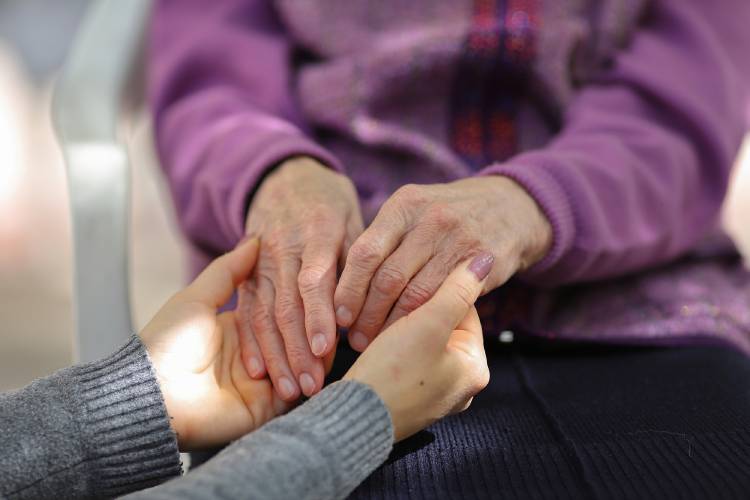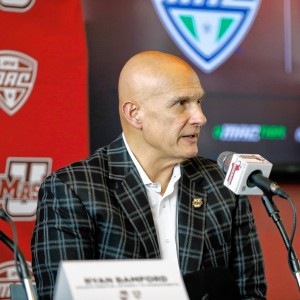Bills seeks to allow spouses to be paid caregivers

Mykhaylo Sahan/Dreamstime/TNS
| Published: 10-20-2023 10:24 AM |
BOSTON — People could be paid to act as caregivers to spouses with disabilities under proposals promoted at a legislative hearing Monday to address the state’s shortage of personal care attendants.
A slew of family members — including children, grandparents, nieces and nephews, and ex-spouses — can already be reimbursed for providing home-based care and services to their loved ones through a MassHealth program, Sen. Jo Comerford told the Joint Committee on Children, Families and Persons with Disabilities.
Comerford said her bill (S 67), plus an accompanying proposal from Reps. Adam Scanlon and Norman Orrall (H 216), seeks to tackle a “glaring omission” for spouses by broadening the definition of a family member who’s eligible to be reimbursed.
“There are people on the waiting list, as you know, who can’t get the home care they need. Allowing qualified spouses to serve as family members who provide the care will actually expand the pool of caregivers, which I imagine then would reduce the waitlist and allow more people to get the care they need to stay at home,” Comerford said at the hearing, as she noted thousands of people last spring were waiting for at-home care.
The proposal also calls on the Executive Office of Health and Human Services to obtain a federal waiver to amend the spouse coverage provision, if it’s needed, to implement the potential law, Comerford said. More than two dozen states have implemented this reform, according to the Northampton Democrat.
A prior version of the bill was reportedly favorably out of committee last session, though the Joint Committee on Health Care Financing sent it to study.
Under current MassHealth regulations, Scanlon said spouses are forced to make an “impossible choice of letting their loved one go without care or make a significant sacrifice financially to work less in order to provide that care themselves.”
“We have, of course, already decided to pay for that care anyway by a different person, so let’s let spouses fill that gap,” Scanlon said at the hearing, adding the new class of caregivers would provide continuous care to their loved ones amid steep turnover in the direct care workforce.
Article continues after...
Yesterday's Most Read Articles
 More than 130 arrested at pro-Palestinian protest at UMass
More than 130 arrested at pro-Palestinian protest at UMass
 Public gets a look at progress on Northampton Resilience Hub
Public gets a look at progress on Northampton Resilience Hub
 Northampton bans auto dealerships near downtown; zone change won’t affect Volvo operation on King Street
Northampton bans auto dealerships near downtown; zone change won’t affect Volvo operation on King Street
 UMass basketball: Bryant forward Daniel Rivera to be Minutemen’s first transfer of the offseason
UMass basketball: Bryant forward Daniel Rivera to be Minutemen’s first transfer of the offseason
 Town manager’s plan shorts Amherst Regional Schools’ budget
Town manager’s plan shorts Amherst Regional Schools’ budget
 Police respond to alcohol-fueled incidents in Amherst
Police respond to alcohol-fueled incidents in Amherst

 State Senate budget funds free community college for all
State Senate budget funds free community college for all ‘We can just be who we are’: Thousands show support for LGBTQ community at Hampshire Pride
‘We can just be who we are’: Thousands show support for LGBTQ community at Hampshire Pride Doors open at Tilton Library’s temporary home at South Deerfield Congregational Church
Doors open at Tilton Library’s temporary home at South Deerfield Congregational Church Area property deed transfers, May 2
Area property deed transfers, May 2
